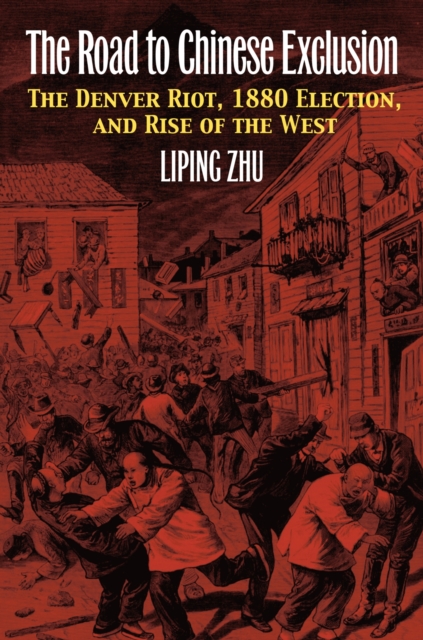Denver in the Gilded Age may have been an economic boomtown, but it was also a powder keg waiting to explode. When that inevitable eruption occurred--in the Anti-Chinese Riot of 1880--it was sparked by white resentment at the growing encroachment of Chinese immigrants who had crossed the Pacific Ocean and journeyed overland in response to an expanding labor market. Liping Zhu's book provides the first detailed account of this momentous conflagration and carefully delineates the story of how anti-Chinese nativism in the nineteenth century grew from a regional political concern to a full-fledged national issue.
Zhu tells a complex tale about race, class, and politics. He reconstructs the drama of the riot--with Denver's
Rocky Mountain News fanning the flames by labeling the Chinese "the pest of the Pacific"--and relates how white mobs ransacked Chinatown while other citizens took pains to protect their Asian neighbors. Occurring two days before the national election, it had a decisive impact on sectional political alignments that would undercut the nation's promise of equal rights for all peoples made after the Civil War and would have repercussions lasting well into the next century.
By examining the relationship between the anti-Chinese movement and the rise of the West, this work sheds new light on our understanding of racial politics and sectionalism in the post-Reconstruction era. As the West's newfound political muscle threatened Republican hegemony in national politics, many Republican legislators compromised their commitment to equal rights and unfettered immigration by joining Democrats to pass the noxious 1882 Chinese Exclusion Act--which was not repealed until 1943 and only earned congressional apologies in 2011 and 2012.
The Denver Anti-Chinese Riot strikes at the core of the national debate over race and region in the late nineteenth century as it demonstrates a correlation between the national retreat from the campaign for racial equality and the rise of the American West to national political prominence. Thanks to Zhu's powerful narrative, this once overlooked event now has a place in the saga of American history--and serves as a potent reminder that in the real world of bare-knuckle politics, competing for votes often trumps fidelity to principle.










